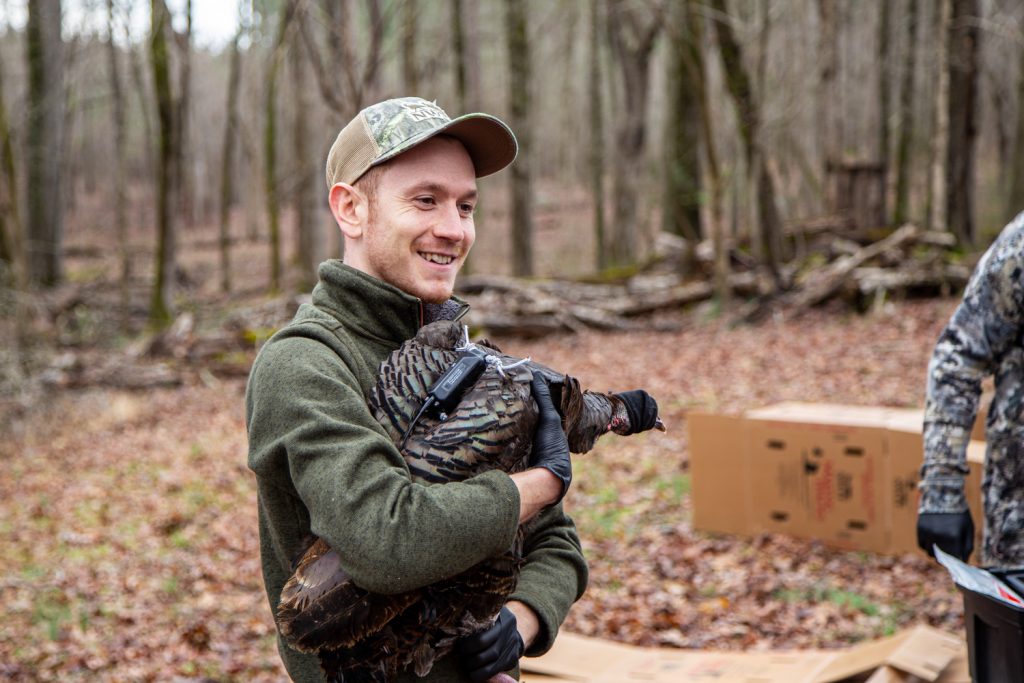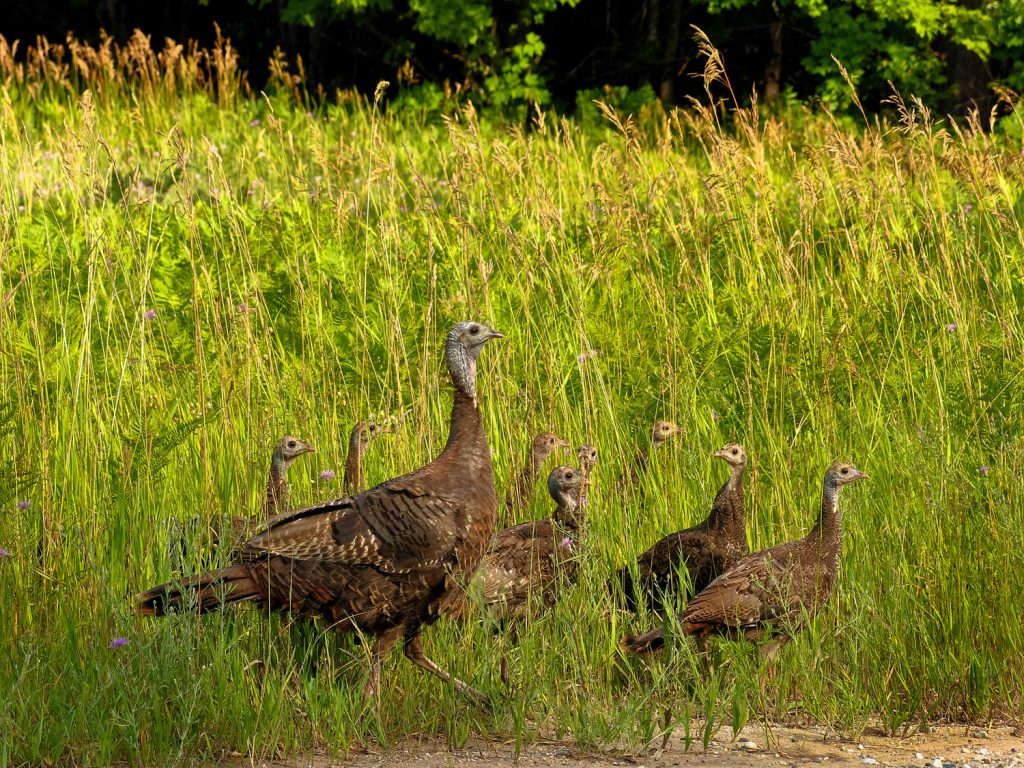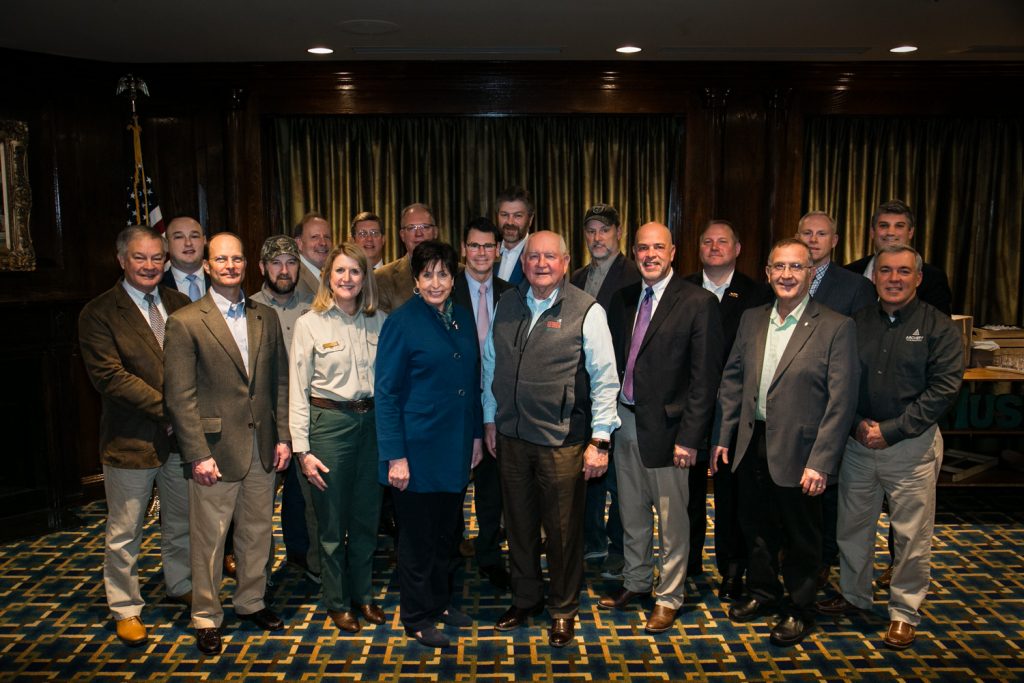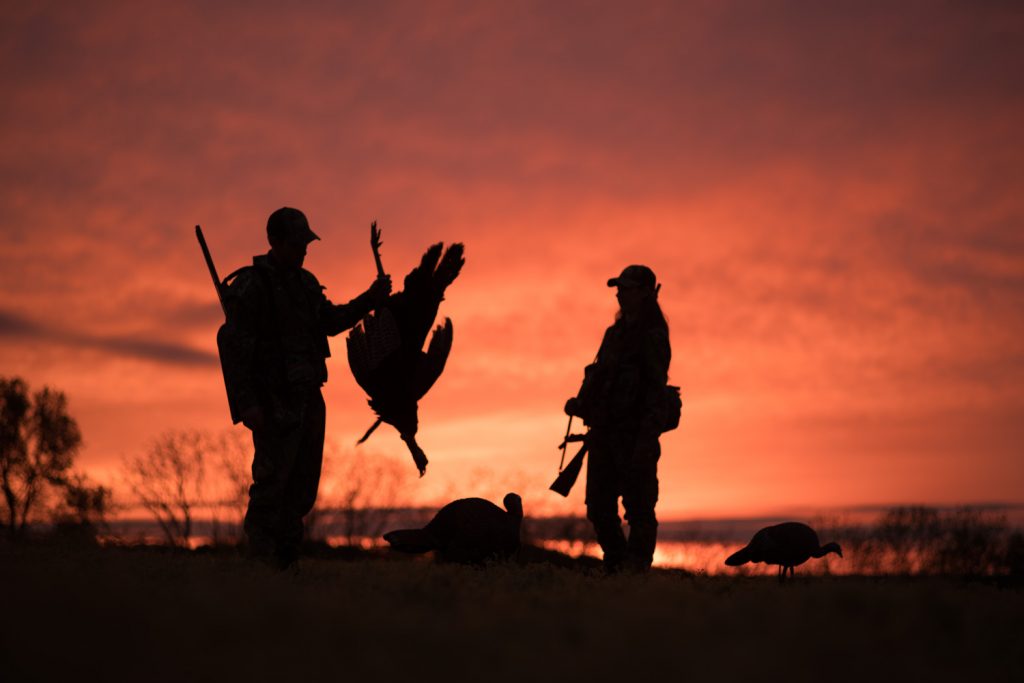The NWTF Mission: A Cornerstone of Conservation
Since 1973, the NWTF has been the cornerstone for wild turkey restoration efforts throughout North America.
From the first research project funded in the 1970s, to the multimillion-acre restoration initiatives going on today, conserving the wild turkey and preserving our hunting heritage has always been — and always will be — the backbone of the National Wild Turkey Federation. It’s about seeing the wild turkey flourish on our landscape. Through our conservation work with dedicated volunteers and partners, our connection with this beloved bird interrelates with so many other areas. The end result impacts wild turkeys and many other wildlife species, but it also serves to better the world we live in and preserves a lifestyle we cherish.
As we address fluctuations in wild turkey populations across the country, it’s worth emphasizing that wild turkey conservation is dynamic, just like the world around us. The challenges the wild turkey faces today are much different than what it faced in the mid-20th century. The ebb and flow of wild turkey populations and the factors that affect these trends are being intensively studied. There is no silver bullet or one-size-fits-all approach to the solution. Causes for population declines in many parts of the country cannot be over simplified, and the NWTF is actively engaged in the ongoing science and research investigating these complex and multifaceted issues.
Whether it is funding this crucial research; enhancing habitat (on both a landscape scale and a regional scale); engaging an array of partners; influencing policy that benefits the landscape, sportsmen and women and public land access for the better; or recruiting new hunters and sharing our passion for the outdoor lifestyle, the NWTF is at the forefront of each conservation and hunter advocacy issue.
We are excited to celebrate our 50 years of wild turkey conservation soon, but we are even more excited to continue our mission for another half century. These have been the guiding principles of our mission thus far and will be for the coming decades:

Wild turkey research
Wild Turkey research is increasingly becoming paramount in understanding why we are beginning to see declines in certain parts of the country, and it is absolutely crucial in addressing these trends.
Our world, including the various landscapes the wild turkey inhabits, is constantly in flux, providing new opportunities and challenges alike. Changing agricultural operations, degrading habitat, lack of water where it was once plentiful, disrupted floodplains, poult survival, state management — the combination of these and countless other factors all have the ability to impact wild turkey populations. Using wild turkey ecology research is the way through which we understand how to benefit wild turkeys in an everchanging environment, make habitat improvements, and ultimately make a difference on a landscape scale.
Since the organization’s inception, the NWTF has contributed over $8 million to crucial wild turkey research projects, with average annual investments of approximately $100,000, which is then leveraged further through partnership-matched funding.
Moreover, the NWTF supports and helps coordinate the Wild Turkey Symposia, bringing together the greatest minds in wild turkey research and publishing and sharing their findings. The research that has resulted from this consortium of agency and academic scientists and NWTF biologists has driven wild turkey management across the country and is the core science responsible for the comeback of the wild turkey and addressing the declines we are experiencing in some areas.
Researchers are preparing the last five-year’s worth of data to be presented in the upcoming symposium scheduled for 2022.
Further, to balance the future needs of wild turkey research, the NWTF is working through NWTF Technical Committee members (state agency representatives to the NWTF) and with the Western, Mid-Western, Northeastern and Southeastern Associations of Wildlife Agencies to outline future research needs that will help guide priorities and identify the best places for the NWTF to invest in research.
The following list of future research priorities, as identified by the above groups along with the NWTF, are in response to obtaining a better understanding of the dynamics and drivers of “post-restoration era” wild turkey populations. Priorities include:
- Disease
- Habitat
- Hunter Influence
- Population Estimates
- Survival

Habitat, habitat and more habitat
Wild turkey ecology research plays an important role in identifying and addressing factors that impact wild turkey populations. Above all, science-based research indicates that creating healthy, viable habitat is a tried-and-true method used to benefit wild turkeys.
Creating wild turkey habitat is where the NWTF pours the majority of its resources because we know that this is the most effective way to benefit wild turkeys on a scale that makes a difference. In the last nine years alone, the NWTF has exceeded conserving and enhancing 4 million acres of wildlife habitat (more than 20 million acres since the NWTF was founded) to benefit wild turkeys.
The NWTF conservatively leverages funding 4-to-1, meaning for every dollar raised by our dedicated volunteers, members and staff, we turn it into four dollars at an absolute minimum. It’s not uncommon to see our dollars being leveraged at an even higher rate. That’s why our 30-plus-year partnership with the USDA Forest Service is so strong; it’s why our partnership with the USDA Natural Resources Conservation Service is rapidly growing; and it’s why we are often engaged to improve habitat by an array of other partners, ranging from state wildlife agencies, state forestry agencies, non-governmental organizations, private organizations and private donors.

Policy
The NWTF is also a non-partisan organization that supports science-based measures and legislation benefitting sportsmen and women, wildlife habitat, wild turkeys and countless other wildlife. We work with like-minded organizations and partners, like the Congressional Sportsmen’s Foundation, the American Wildlife Conservation Partnership, the Association of Fish and Wildlife Agencies, the National Association of State Foresters, the Sportsmen’s Alliance and many others to amplify our voice at the state and federal levels.
On Capitol Hill and at capital buildings across the nation, we advocate on behalf of our federal land management partners, such as the Forest Service and NRCS, the U.S. Fish and Wildlife Service and the Bureau of Land Management, to better fund forest and grassland restoration and reforestation efforts. Those efforts have a direct impact on wild turkey habitat while also reducing risks of wildfire, improving water for millions of people and improving hunting opportunities on these federal lands.
NWTF staff has been at the table to help craft the language of the Farm Bill’s conservation title, the Great American Outdoors Act, the Pittman-Robertson Modernization Act, the Trillion Trees Act and the Recovering America’s Wildlife Act to name just a few.
We most recently made a stand against the anti-gun nominee for the Bureau of Alcohol, Tobacco, Firearms and Explosives (ATF) director, David Chipman, to encourage the U.S. Senate to not confirm him to the post. In contrast, we supported a federal rule change to open 90 more national wildlife refuges and one national fish hatchery to hunting and fishing, which amounts to more than 2 million acres of additional access if adopted.
At the state level, our staff works closely with state chapters and partners to identify and engage in policy and regulations that affect conservation, hunters, outdoors enthusiasts and our ability to fundraise.
Through action alerts, letter-writing campaigns, legislative testimony and other forums, the NWTF is proactively protecting our lifestyle and working with state wildlife agencies to reduce barriers to hunting, update regulations to allow for a broader range of shotgun gauges and ammunition, reduce age restrictions on youth and adjust seasons to address turkey management needs.
Since January of 2021, the NWTF has engaged in, provided expert testimony toward or is monitoring over 50 regulations changes, legislative actions or ballot propositions in 25 states on members’ behalf.

Hunting heritage
Conserving wild turkeys and preserving our hunting heritage are inextricably linked. This timeless mission and unwavering commitment has led the NWTF to become one of the premier organizations in the fight to preserve our hunting heritage. Hunters are an integral part of funding conservation, and every year millions of wildlife viewers, hikers and other recreationists experience wildlife and other natural resources that have been preserved and maintained by hunters and shooters. This user-pay system is at the core of conservation; however, with participation in hunting generally declining since the 1980s, there is a sense of urgency to broaden the funding base. This is one reason why recruitment, retention and reactivation (R3) efforts across the country are critical.
Outreach and education programs are a way for us to not only ensure wild turkey conservation is funded, but that our hunting heritage, which is so deeply engrained in our mission, is preserved for generations to come. The programs, under the direction of our mission, began with the creation of the JAKES program in 1981 and continue to evolve today with hunter recruitment events spreading across the nation. NWTF chapters host events that provide men, women, youth and people with disabilities the opportunity to try outdoor activities. We’ve expanded programming to include Learn to Hunt Clinics, mentored hunts and Field to Fork events that introduce individuals to hunting by highlighting the connection to food. Our passionate NWTF chapters host events that are facilitated by volunteers and held in partnership with federal and state wildlife agencies, other conservation organizations and the outdoors industry.
We believe in doing what is necessary to keep our hunting heritage alive; we initiated these programs to pass on the traditions of safe, ethical hunting while teaching conservation principles to the next generation.
We are proud to say our mission has been laser focused for nearly 50 years, and we are dedicated to keeping it that way for 50 more.
Yours in Conservation,
The NWTF Family Flock
CONNECT WITH US
National Wild Turkey Federation
770 Augusta Road, Edgefield, SC 29824
(800) 843-6983
National Wild Turkey Federation. All rights reserved.
